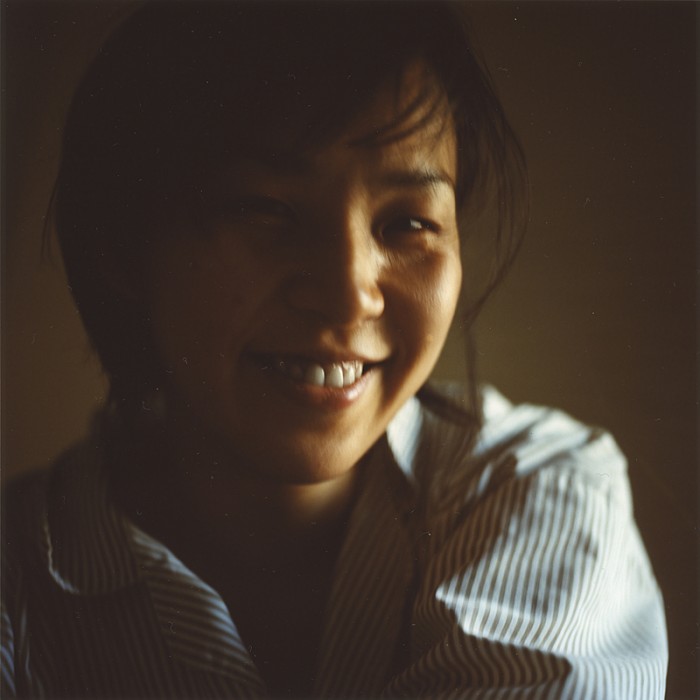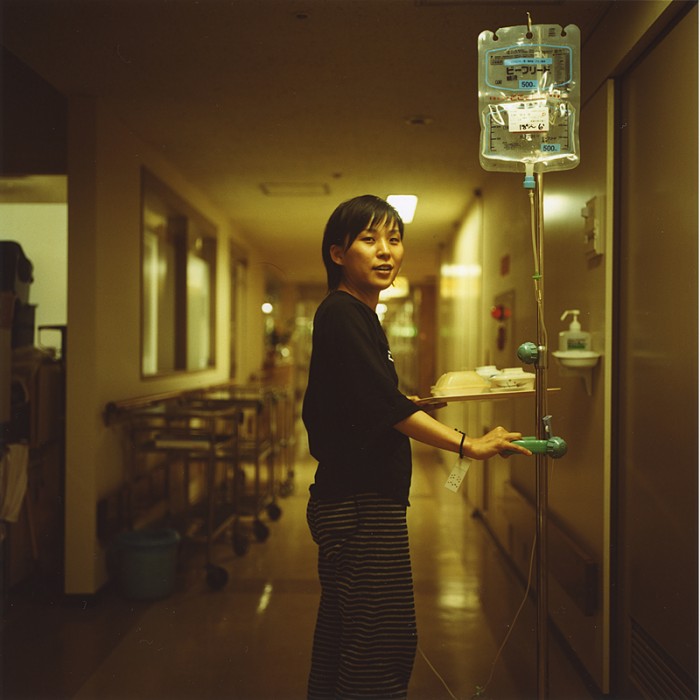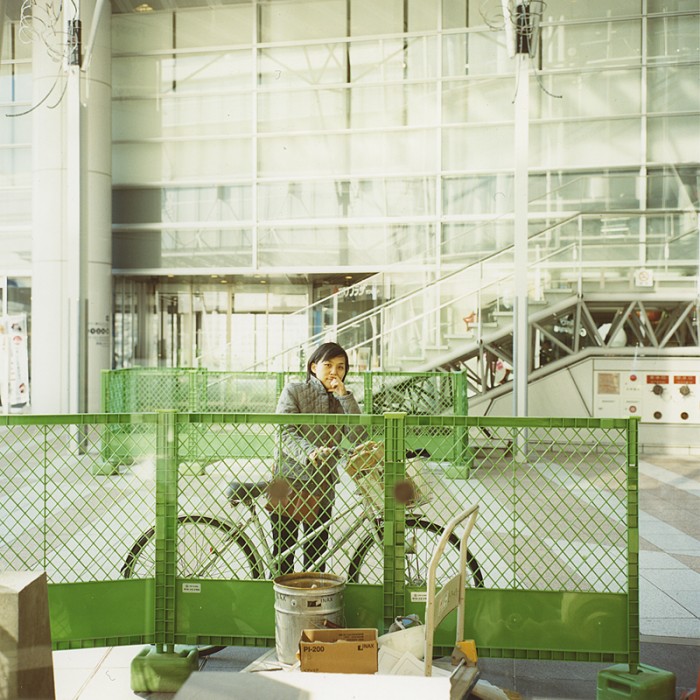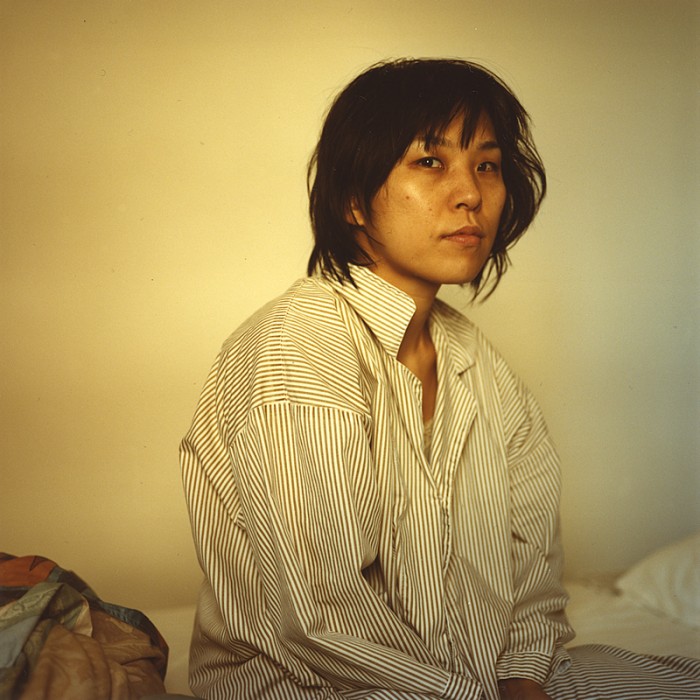Recover
-
Prize
-
PhotographerFumio Iwaki, Japan
-
Website
My name is Fumio Iwaki.
I was born in the city of Kobe in Japan on December 21,1966. It was a beautiful port city facing the Setonai-kai, an inland sea. After having moved several times to the cities overseeing oceans, I now live in an inland town, Ekoda in Tokyo.
At fifth grade, I won the prize in a drawing contest in the school. I felt truly happy being praised by others. I engrossed in drawing more pictures. It was also true that drawing allowed me from not to have to think about the mundane.
It seemed like a natural progress for me to apply to a university of art. However the result was a failure. In those days, it was usual to enter a university after graduating a high school. I had no choice but to go to any university that received me. I entered the Department of Economics at a national university. At the same time, I departed from the examination-oriented drawing.
One day, I had a chance to take a photograph of a senior coed of my dream with a camera that I happened to own. It was a simple portrait, bust shot of a woman standing in natural light of the classroom.
She was very pleased to see the finished photograph. I was flattered to hear her say, �¢??thank you�¢?? to me. Most of all, it was a fresh surprise for me to have made her pleased so much by the photograph that I had taken. I had people surprised by my drawings but never experienced being thanked by them. I was not a sociable person until then but I was able to deal with the outside world through photography. This incidence led me to develop an interest in photography.
In my university days, I experienced various part-time jobs. On one occasion, I was hired as a cameraman of a subcontracting production company for a TV station. However, I could not adapt myself to the routine work at the site and I soon left that job. Still holding a desire for photography, I was able to get an assistant job at a commercial studio.
I felt strong sense of responsibility for shooting numerous product and dish shots. It was not a pleasurable experience. However, the reason why I was able to stay there for three years was because, like drawing pictures, I did not have to think about the mundane when I was absorbed in the shooting. I gained many technical skills in photography, especially lighting in those days.
Upon graduating from the university, I did not take a permanent job. I felt I could make photography my profession and I became an independent photographer from an assistant job. However, becoming a freelancer did not mean that I suddenly get many shooting calls.
It was in those days, when I was assigned to accompany and cover the East Germany performance of Kagawa Junior Chorus Group. At first, I thought they were just a group of kids singing chorus but I was betrayed by my prejudice after visiting the rehearsals. Every girl has expressed that their goal was to make the performance so great that it could change the lives of the listeners. This was not something children in their teens normally say. The looks of the girls on a strict practice and proper guidance were lively and vivid.
It was an amazing spectacle. At that moment, I felt that only through taking their pictures, could I get associated with them. Also, I was confident that taking their pictures was the only way to document the context that would be gone two weeks later. As I was taking the photographs, my heart truly wished for this moment to never come to a closing.
A sense of harmony holds an important weight in my works. It could be assumed that the aforementioned experience had a great influence over this factor. I also learnt that rather than missing the past, we need to be a good recipient of the future.
There was always an inferiority complex in my mind, despite experiencing numerous shooting sessions and the gradual growth of assignments. It was coming from my background, I had no formal education in photography. Often times I was asked, �¢?? Which university of photography did you graduate?�¢?? It may seem trivial but this question was often asked in the countryside. I garnered my skills as not to rely on �¢??brand names.�¢??
Around the end of 1990�¢??s, faint wave of digitalization reached the photographic world. I began to work on the digital photography when not so many people around me were interested. After a while, through experiencing many trials and errors, I had established my name in digital photography.
I was feeling a sense of superiority. Confidence of having a superior skill spoiled me and I became an arrogant and narrow-minded person.
One day at that period, I was requested by a director to take portraits with films. I made an appeal at first, but in due course, I shot the portrait as requested. The photographed film was actually scanned to make the image data. I was amazed by the beautiful result. Once again I learnt my immaturity.
Although digital cameras are used by majority of people, I started to take pictures with the film again. I adopt the technique of scanning photographed film to make data. The technology to deal with the data, cultivated by using the digital camera was very useful for this technique.
I had achieved certain degree of success by then as a professional photographer. However, despite monetary income, I could not obtain the satisfaction as an artist. It was due to the fact that there were many substitutes who could replace me.
One day, when I was pushed for time and busy at work, I came across the words of Satoru Watanabe. �¢?? �¢??Photographer�¢?? is not a title of an occupation. It is a way of life.�¢?? I felt like being struck by a lightning.
It was an idea coming from a different perspective; completely different from my way of thinking at that time. All I had in my mind was about being famous and how to gain more money.
I enrolled in a workshop held by Satoru Watanabe. I felt like returning to my student days and it was a refreshing feeling.
The advancement of a digital print had the remarkable one.
However, I was not able to be satisfied with a sense of existence as the thing of a digital print. Therefore, I returned to an analog print. It is a recurrence after an interval of ten years. I want to make the print a certain thing that exists in the hand. I value the sense of touch.




